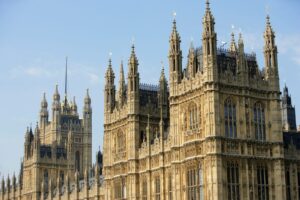UK economic growth slowed more than expected in May, according to figures released on Friday by the Office for National Statistics.
Economic growth slowed to 0.8% from a revised 2% in April, coming in well below expectations for 1.5% growth. April’s figure was revised down from 2.3%.
That leaves growth 3.1% below where it was in February 2020, before the Covid-19 pandemic hit.
The services sector was the biggest contributor, with growth of 0.9%, after indoor hospitality was allowed to reopen in May. Accommodation and food service activities grew by 37.1%.
The production sector saw growth of 0.8% in May, mainly because of adverse weather conditions boosting output in electricity, gas and air supply. Meanwhile, the construction sector contracted for the second month in a row, by 0.8%, but remains 0.3% above its pre-pandemic level.
The manufacturing of transport equipment fell by 16.5%, suffering its largest drop since April 2020 as microchip shortages disrupted car production.
ONS deputy national statistician for Economic Statistics Jonathan Athow said: “The economy grew for the fourth consecutive month, albeit at a slower pace than seen recently, but remains around 3% below its pre-pandemic peak.
“Pubs and restaurants, who were again able to welcome indoor guests, were responsible for the vast majority of the growth seen in May. Hotels also saw a marked recovery as restrictions lifted.”
Samuel Tombs, chief UK economist at Pantheon Macroeconomics, said: “May’s weaker-than-expected increase in GDP underlines that the recovery to its pre-Covid levels will be drawn out.”
Paul Dales, chief UK economist at Capital Economics, said: “The muted increase in GDP in May is especially disappointing at a time when some more timely indicators suggest that the economic recovery lost a bit more verve in June. This may mean that the recent rise in Covid-19 cases and the delay to the final easing in Covid-19 restrictions is hampering the recovery.
“Of course, the pace of the recovery was always going to slow as the economy climbed back towards its pre-crisis level. But we hadn’t expected it to slow so much so soon. As such, whereas we previously thought that GDP would return to its pre-crisis peak in August, October now looks a better bet.”














